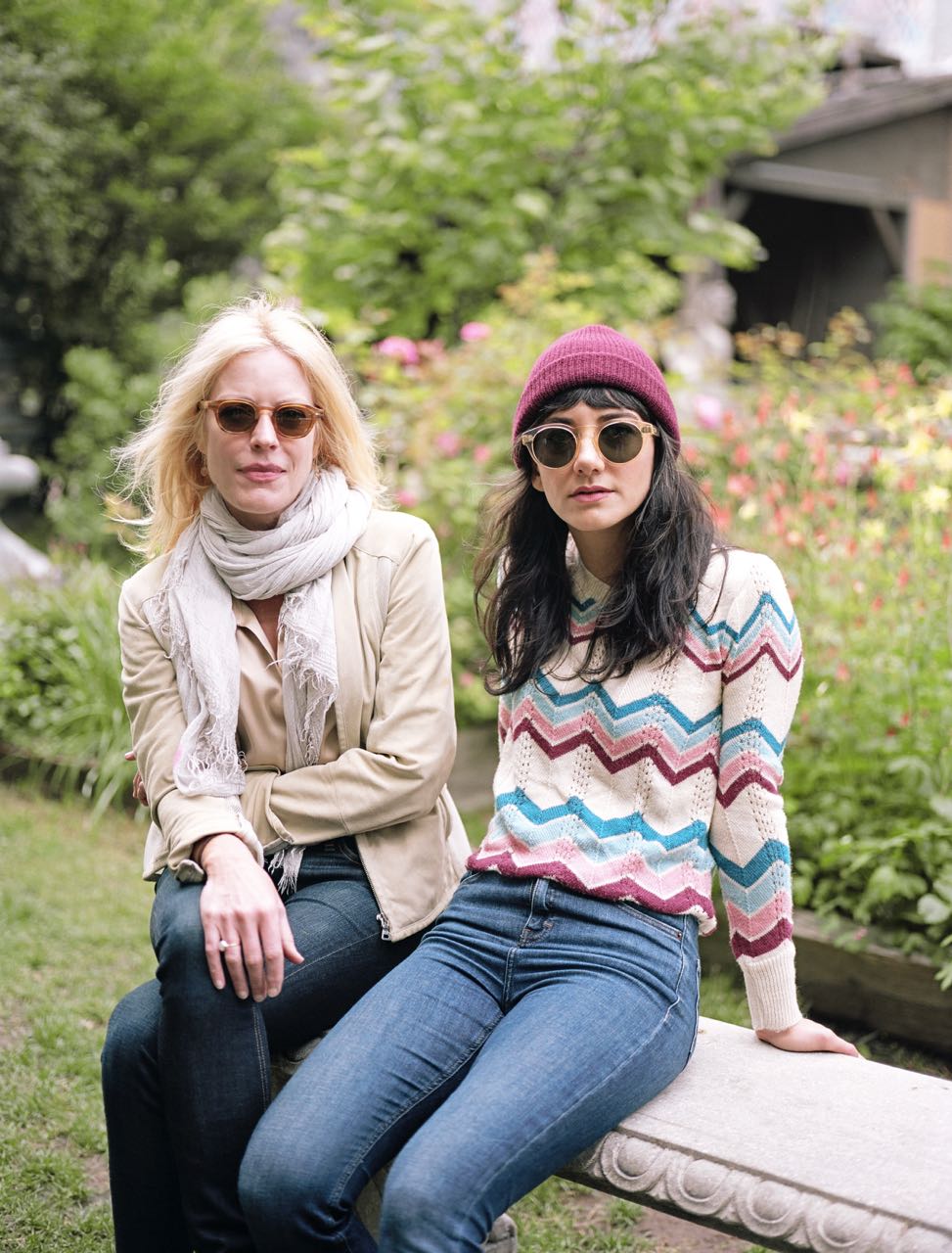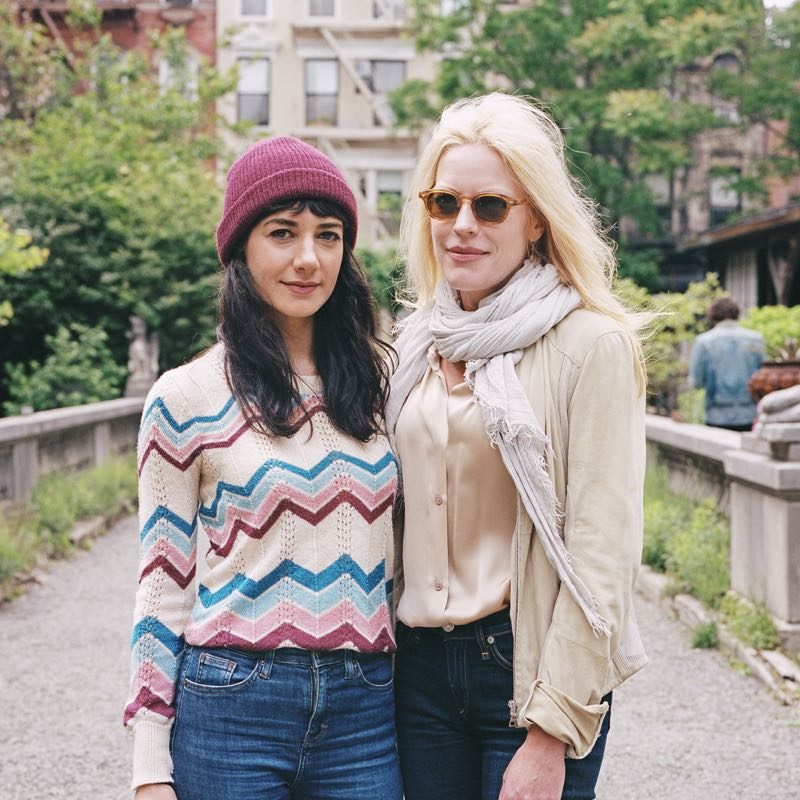Reviving Ophelia with Sherie Rene Scott and Sheila Vand
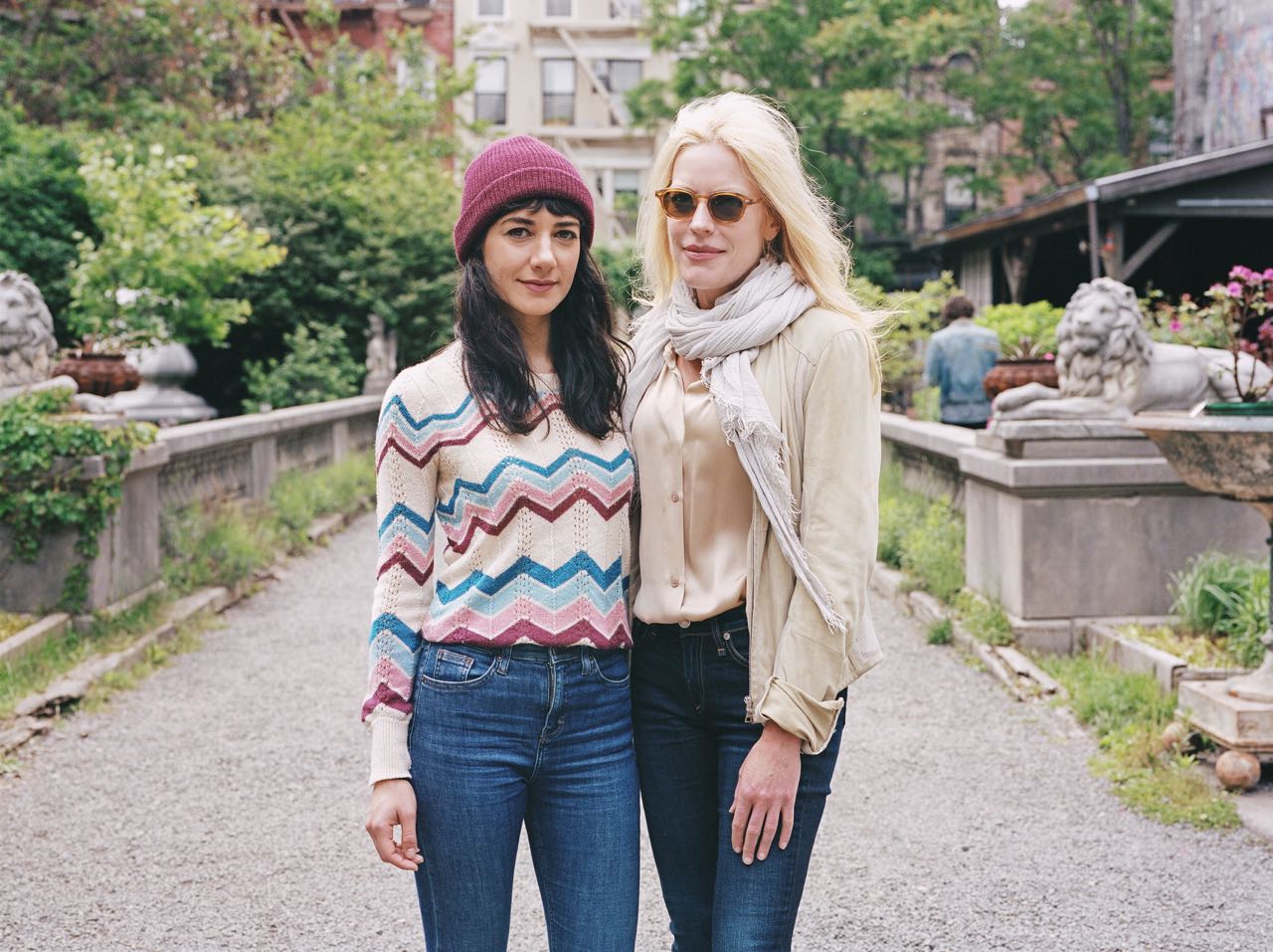
Written by Victoria Myers
Photography by Jacqueline Harriet
May 29th, 2017
If I told you there was a woman in New York City who had real magical powers, would you believe me? So, here’s the story: We’re standing outside the locked gates of Elizabeth Street Garden with Sherie Rene Scott and Sheila Vand. They’re currently starring in Waterwell’s production of Hamlet at the Sheen Center as Gertrude and Ophelia, respectively. The Waterwell production, directed by Tom Ridgely, sets Hamlet around World War I Persia (now Iran), and has been notable not only for its timely political resonance, but the way in which its reinterpretation of the classic has created a new vibrancy within the text as it explores the interplay of ideological organizations of cultures, families, and individuals—and that is especially true for the women. For the women in Hamlet live in a world of men where they are often used as symbols, ciphers along the journey of revelation for the male characters. Yet in this production, the women absorb all of that and create something new: How do you deal with other people’s expectations and assumptions about you and still remain true to yourself? How do you have integrity and power in a world that wants you to take up as little space as possible? How do you work within the social and physical world that has been constructed for you, without your consent, and still manage to escape it and be a full person?
So we took Sheila, who starred in A Girl Walks Home Alone and has created and appeared in her own performance art, and Sherie, who will have a Pulitzer Prize sooner or later, to the garden—only the gate was locked. And as we stood outside trying to think of what to do, if we should go someplace else, Sherie looks off into the garden and goes, “I think I see a man. There’s a guy over there.” No one else sees what she sees—we’ve been standing there for 15 minutes, and there is no one in that garden. “No, there’s a guy over there.” Still no one sees anything. But then, suddenly, there is a person in the garden where there was no one before, and the gates are being opened, and Sheila turns to Sherie and jokes, “You manifested him,” only I didn’t think it was that much of a joke. Anyway, you can believe me or not about there being women right here in New York City with magical powers, but we got inside in the garden and that’s where this conversation took place.
When you actually started to look at the female characters in Hamlet for Ophelia and Gertrude, how did you first start to conceive of what you wanted the characters to be?
Sheila: I think I had some stronger impulses because I was playing a Middle Eastern female in this world. So I know a big part of my approach was to make sure that she was very strong-willed and smart and more powerful than I actually feel like she is on the page. Because I was looking at the context of how Middle Eastern women are represented in general, and finding my place in that. We both were, I think. There’s an extra layer when you’re playing a brown girl; she can’t be submissive.
Sherie: And [Sheila] speaks Farsi and knows this culture very well. We talked about this idea that when women are these archetypal figures—which they usually are because there’s not that many roles in a play—we represent so much, and we always hear that we have to represent for all women. It’s not just us we’re representing. So I think she had the extra burden of that; representing the Iranian women that she knows with this Elizabethan writing, to make it in that world. I think it’s just incredibly amazing, and it makes sense to me for the first time—her portrayal of it is honestly the best. And I think we both, without meeting each other, had the same feeling. I’d always seen Gertrude as being played where it ended up on the bed with her going, “Oh, Hamlet. No, what will thou do?” But it’s like, she’s a fucking queen. So I really wanted to try to go at it from that perspective while also wanting to honor the outside, the colonization of the thing—that I’m the foreigner in this world. I’m the outsider coming in, and my job is to help. Hamlet is from two worlds—he’s from this Danish war bride world and his dad was this Persian warrior. I wanted to articulate that, another version of what Hamlet’s going through, and how can I do that and still not have her weeping on a bed being like, “Woe is me.”
Sheila: Speaking of woe is me, that’s one of Ophelia’s most iconic lines, and on the surface, it feels like victimization. The way I’ve always experienced it before was coming from a weaker standpoint. In general, she’s often reacting to what’s going on rather than a more active agent. The way Tom [Ridgely] was directing us was to activate things and always make things happen for a purpose, even if on the page it doesn’t necessarily seem like she’s as active as she is. In the process of it, I just gained more and more respect for her, because I feel like, in a lot of ways, she’s all the things Hamlet can’t be. He asks, “To be or not to be,” but she is to be or not to be. She answers that question with her actions, without having to ponder it from a completely intuitive visceral place, which I also think is maybe the difference between men and women in this world. I kind of stumbled across this idea in the process, that while Hamlet’s busy putting on his antic disposition, it’s Ophelia who’s actually losing her mind throughout the course of the play, not just when her father dies. So how does that look in an overarching way? How can “Woe is me”—not just that line but that entire concept—come from a place of strength? Come from a place of active deliberate feeling and decision and not from a place of victimization?
Sherie: But also the idea too, that sadly—and we know what this is like in this time too—women don’t have a lot of choice in this play. Ophelia doesn’t have a choice of who sits next to her. If Hamlet wants to sit next to her, Hamlet sits next to her. If her dad wants her to go be a part of this thing, she has to go do what her dad says. There’s a lot of trying to find strength when you’re not given any, I think. I’m hoping to articulate for Gertrude that she’s trying to save her son from being killed as the next heir, and she doesn’t have a lot of choices. They can either run away when her husband dies—because without a man around in this play, and certainly in 1918 Iran, and even nowadays—women are more vulnerable, and she had to attach herself to power right away to save her son.
Sheila: We talked about family. Family came up a lot in our process. You’re a mother.
Sherie: Yeah. My mom was raised without any choices and stuff like that. Also, the difference of warmth with this cast because of their culture—there’s kissing, there’s hugging, there’s touching, there’s affection on stage. I’ve never seen that on stage in any production of Shakespeare. Our first act is kind of hopeful, and Tom says it could be the end. It ends with a celebration. It could be the ending of a play when everybody gets together and it looks like it’s going to go great. Those real bonds of love and affection are genuinely there between people. Sheila was a big part of saying, “We’re a family. We touch, and in our culture we do this.” Why, when we are doing Shakespeare, are we suddenly not doing it? I think that added a huge focus of this idea of colonization of a country and of somebody coming in and taking over. There’s a similar thing with a stepparent coming into a family and you’re trying to retain some of what your family was, while this person who’s very powerful is taking over your family. That’s what Hamlet’s going through. These are families without moms or without [fathers]. Making the humanity of it come out and the family come out was interesting to us, and felt like a way to connect into the piece.
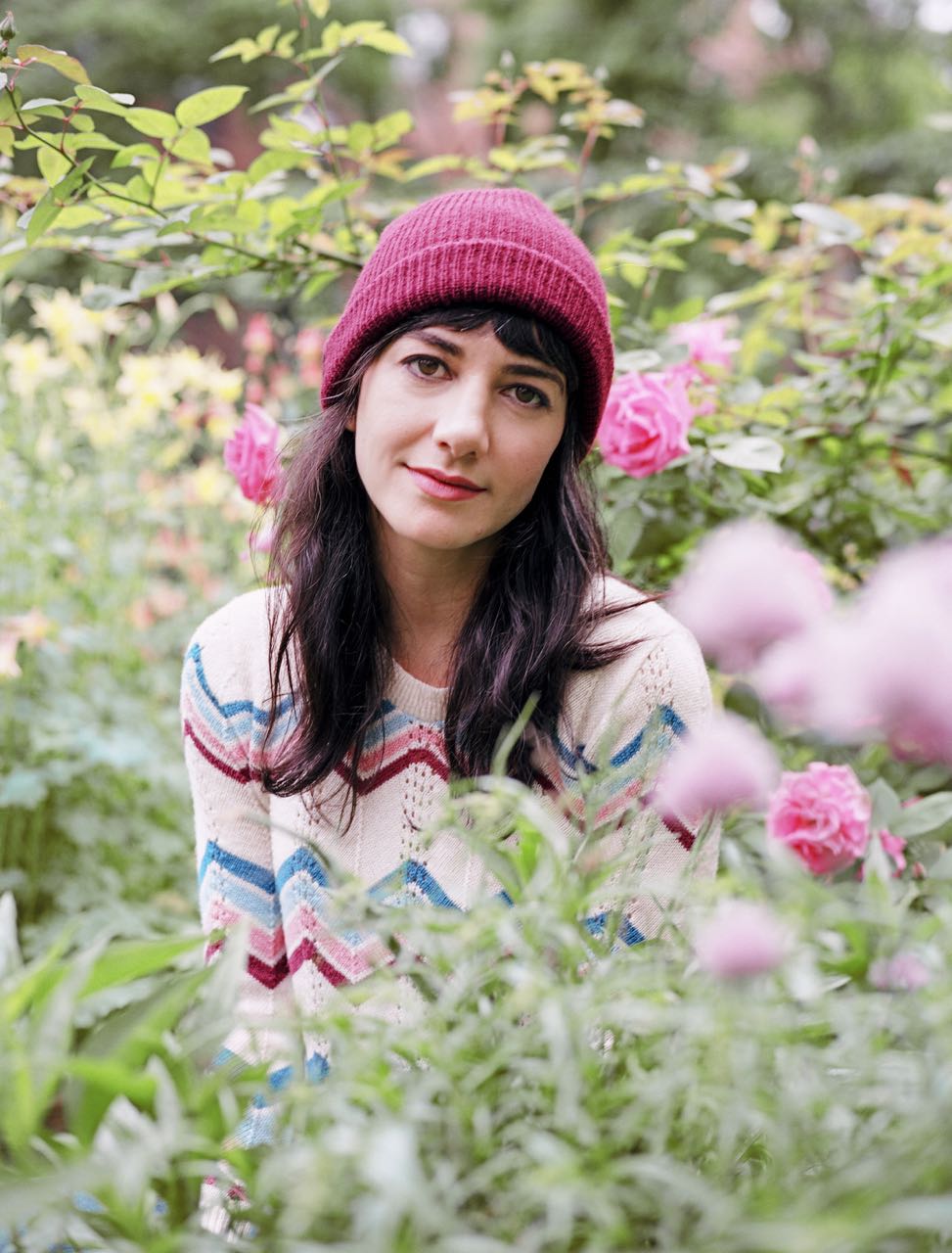
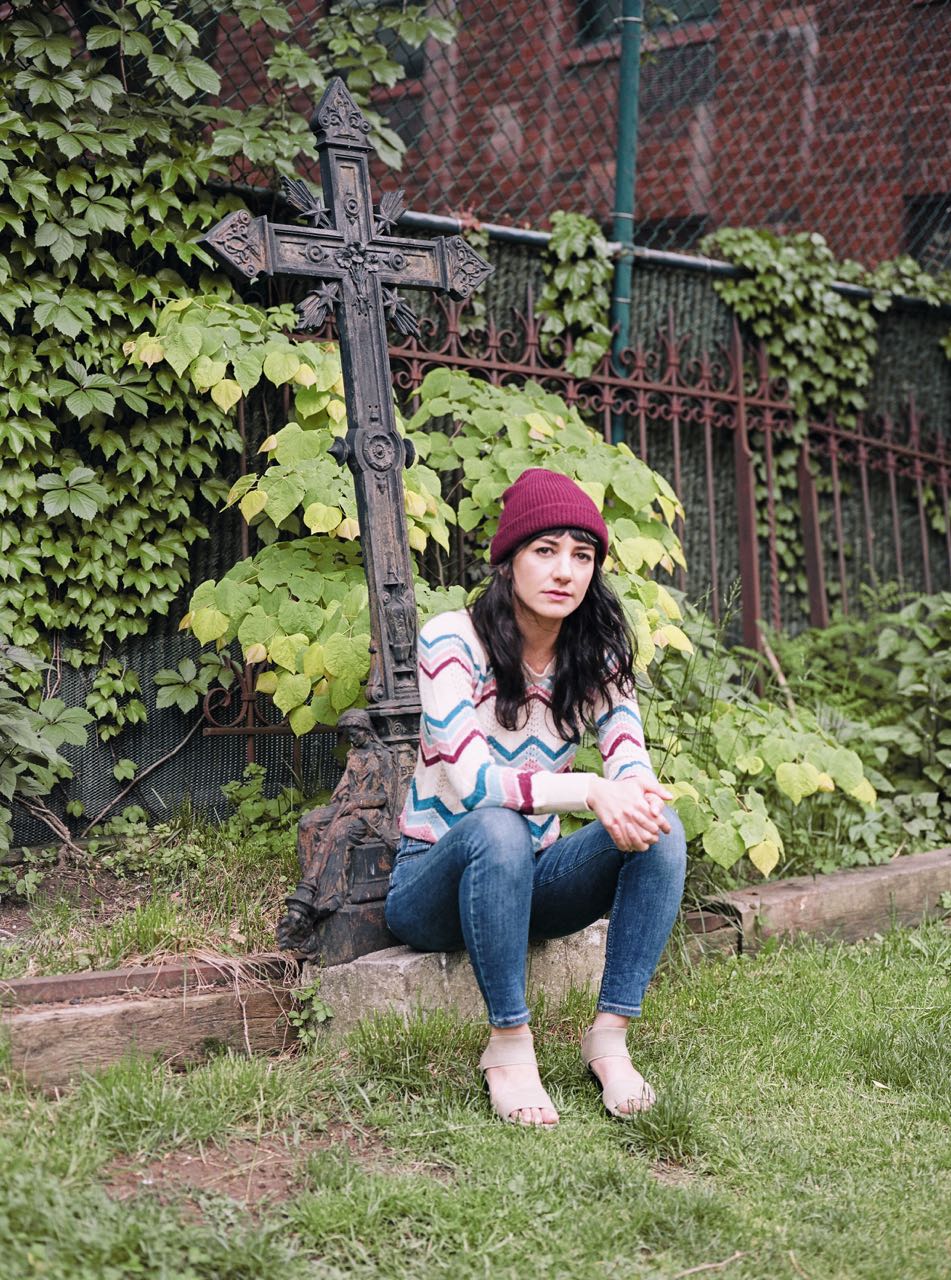
Going back to what you two were saying before about making the women more fully dimensional and how that ties into the idea of how women relate to family and all of that, could you talk more about how you worked on the process of making sure that the women actually weren’t just ciphers or there to serve the male characters?
Sheila: Well, a lot of that is done within the line, or under and between them, because the fact of the matter is, with the play within the play, it’s not really up to Ophelia whether Hamlet’s going to sit next to her and if she wants that or not. In the nunnery scene, she barely speaks until he leaves. It’s only when she’s alone that she’s able to kind of explode with her own thoughts on what’s happening. So I tried my best to have an opinion on those silences. To have an opinion on that repression and restriction even if there wasn’t necessarily a line there, but coming at it from a different angle.
I’m not a Shakespeare scholar and I’m not going to pretend like this is my area of expertise, and I’m sure that there are a lot of die hard people who are like, “You have to say the text exactly as it was intended to be said.” I don’t really have an interest in just replicating the same thing over and over again. I’m fine with my approach, which is, where do my heart and soul fit into this? Right now, in 2017, there does seem to be this resurgence of this feminist energy, and Sherie, as a mentor in my life now, also brings a lot feminist energy into my consciousness. So then, thinking about all the times in my life where I was silenced or where I didn’t have a choice or where I had to be who I thought I was supposed to be rather than who I wanted to be. Those are not just Middle Eastern girl problems, those are not just problems that happened when Shakespeare wrote these plays, or in 1917; these are problems today. So I tried to fill it with that energy—that you can follow the rules with defiance, with a lot of integrity, with your head held high. You can say, “I shall obey you, my lord.” And still just have a sense of independence inside of that.
Sherie: Right, and there’s an awareness of that. The character knows this too. Her “woe is me” is the perfect example of what’s so beautiful and connects what Sheila’s doing. That’s her private moment, but it’s not, “Oh, woe is me, feeling sorry for myself,” it’s like, “Oh my God, I have to go through this, this is so unfair, this is so painful and so wrong and so unfair. Oh, woe is me, this is clearly so wrong.” It’s strength of like, “Oh, poor women everywhere that we have to go through this.” It comes from a really deep place of frustration and intelligence and awareness. These are smart women, they’re aware of what they’re in. I think that setting it in Iran in 1918 helps that come more alive in the text. These women are aware of what the traps are and how they can work in this context, and try to make the best of it and still find love and still keep their hearts open until the very, very end.
It’s no coincidence that Ophelia and water [are connected]—we are the feeling, we are the emotion, we are the womb. Our strength is in not imitating men. You kind of want to take on the power of your oppressors because that’s what you see as power. I think women have done that. We think that’s strength, where instead our vulnerabilities are our strengths: our female-ness, our earth mother-ness, our goddess-ness, these are the ways to our strengths.
Sheila: I’m still rehearsing it even though we’re open. I’m still trying it in new ways and I’m still trying to get deeper into it. I don’t know when you’re done with the work. I know there was one performance where I tried it particularly defiant and angry. It was an Ophelia that was almost mean because she was so frustrated with the fact she was constantly being told what to do and no one was really believing her opinion on the matter. A few audience members brought up that they weren’t sure how the breakdown was going to work, if they were even going to feel bad for her, because she was such a defiant Ophelia. They ended up saying that it worked even more for them because it felt like they saw someone who had so much integrity and nobility completely crumble.
I just thought that was such an interesting and relevant initial reaction, that you see a defiant woman and you think “shrew.” We still think that. When Hillary Clinton was called a nasty woman and all of a sudden that becomes the iconic slogan, it’s because it is resounding so vastly in our society. And it’s fucking 2017. I was listening to these audience members and I was glad their point ended up landing somewhere positive and complimentary, but at the same time my face was a bit twisted up. I was like, “What’s the problem with her being mad about this?”
Sherie: I distinctly remember being in a big Broadway show, and the whole show is the woman following her boyfriend around and seeing him with other people. The director came backstage and was like, “Yeah, people don’t like angry women, and men especially don’t like angry women, so you can’t play her angry.” I’m like, “The entire show is about us watching her go from finding this lover who’s been lying to her, and about rage and anger and unfairness. But I can’t play angry?” “No, you can’t play angry.” So I learned a lesson there: there are little compartments that we can fit in that people are comfortable with. Certainly, Hillary Clinton is a perfect example of that; nobody could really explain why they didn’t like her, and what we had against her that was just so abhorrent in every way. Unfortunately, women need to take responsibility for that too, and how we don’t support our strong vocal [women]. I don’t know anybody on this planet that shouldn’t be angry right now. If you’re not angry, then you’re not living actually in this world at this time. Because there’s a lot to be angry about. And how women have to learn how to express that in a way that is palpable to men—and now women—is really disheartening.
Sheila: The fact that anger from women is considered abrasive, and then it’s considered strength amongst men, is just something that I no longer believe.
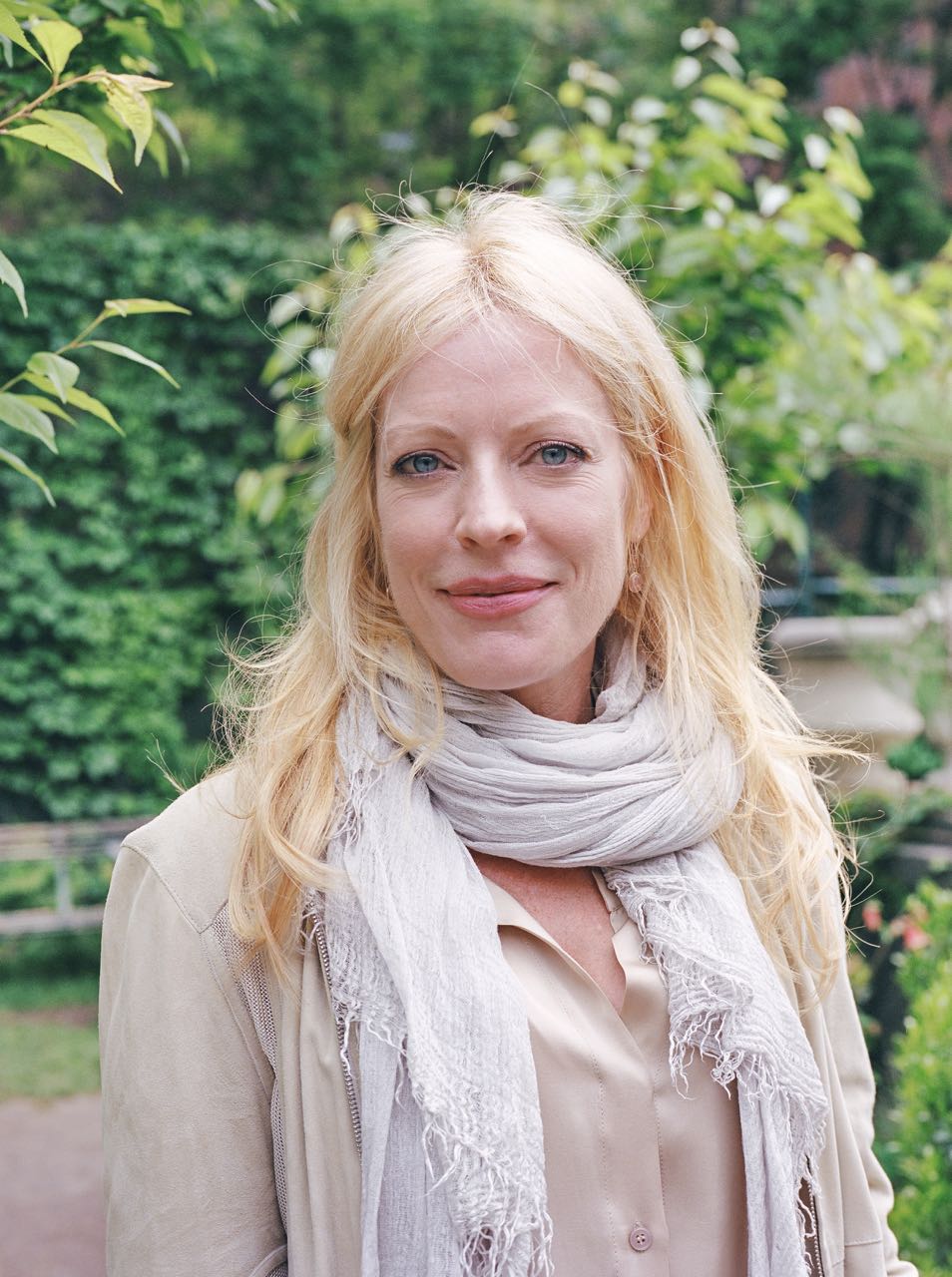
How have other people’s perceptions affected you as artists? Especially being in an industry where you have a lot of people telling you who you are and, “This is what I see when I look at you,” and people having preconceived ideas of how things should be, who you should be. How does that affect you as creative people?
Sheila: Something I’ve struggled with a lot—and now, thank god, feel like I’m kind of coming out the other side of—is it has taken a lot of work to undo and shed myself of the garbage that people have piled on top of me throughout my career. Thankfully, I do think that with the right influences around me and with a lot of work, I’m now able to be just exactly who I am rather than who I think I’m supposed to be. But it is really difficult as a woman, in general, and then pile on the actress thing on top of that. But working with someone like Sherie is 100% part of this and has been a big encouraging push for me in this direction that I’ve just started going into in the last year or two. Realizing how much sexism and misogyny is woven into the fabric of things. Sometimes it’s very subtle and sometimes it’s not so obvious when you’re being put into a box that way. Having strong women around you is one of the best ways to see the other side, to see what’s outside of the box, and to think, “I don’t have to act like this. I don’t have to be this way.” It is very stifling creatively because everything that creativity is about is being an open vessel, being able to channel the divinity of the creative energy. You can’t do that when society and life partners and work situations are just pushing your boundaries closer and closer in.
Sherie: Making your space smaller and smaller.
Sheila: “I don’t want to impose on the world.” Like, no, fuck you.
You’re allowed to take up space.
Sherie: Right. And because there have been times, just like with that director, for instance, when I was really feeling really good about being a full person in that experience, and that was completely shut down. You learn really quickly to go, “Okay…” And not that we stop, but we try to find better ways of doing it because you get shut down.
It’s been a real quandary, because you want to be your best self on the outside and the inside, but then you, of course, get treated differently because of how you look on the outside. I think it’s difficult for women to balance that and try to keep managing that. It’s like, “I’ve got to be fucking sexy at 50? Are you kidding me?” When did that start and how fucking long does that go on? But I do feel sexier than I’ve ever felt in my entire life. But it’s all of these weird things with where the power is right now with women. There seemed like there was a time when it was going to be intelligence, or artistry, or…
Sheila: Then social media came around.
Sherie: Thank god I never read anything. The last thing I’ll say is that I’ve been through a lot personally, and career-wise, with men—and with women. The most heartbreaking thing is when women aren’t there for you. When we went to see A Doll’s House, Part 2, some of those speeches that Laurie Metcalf gave felt like it was channeled. It was like, how could a dude write or know what it’s like for somebody like me, or I look at Huma Abedin or Hillary, a very, very smart woman who has married this person who’s really, really damaged and unwell. There are a lot of smart women out there where part of us is held back with this kind of romantic ideal or this idea of a life partner, and we’ll do anything to keep it. So I loved in the show when she said that she literally had to go away for two years so she could start getting her own thoughts back, because they were so inundated with men’s thoughts and what they think and what they would think and what they would want me to do, and, “I should do this,” and, “he wants me to do this.” We don’t even realize how much it happens, and I kind of have taken those two years and I’m now, at 50, just coming back into my own thoughts, and like, “Wait, who was this person who came to this city to do this? What excites me? What thrills me? Where does this co-creation with the creator come from?” And doing this play and being down here, I call it getting back to the garden. I say I’m getting back to the garden. We’ve got to get back to the garden. It takes time to think your own thoughts as a woman. I hope that happens for us now, I hope that happens for us.
